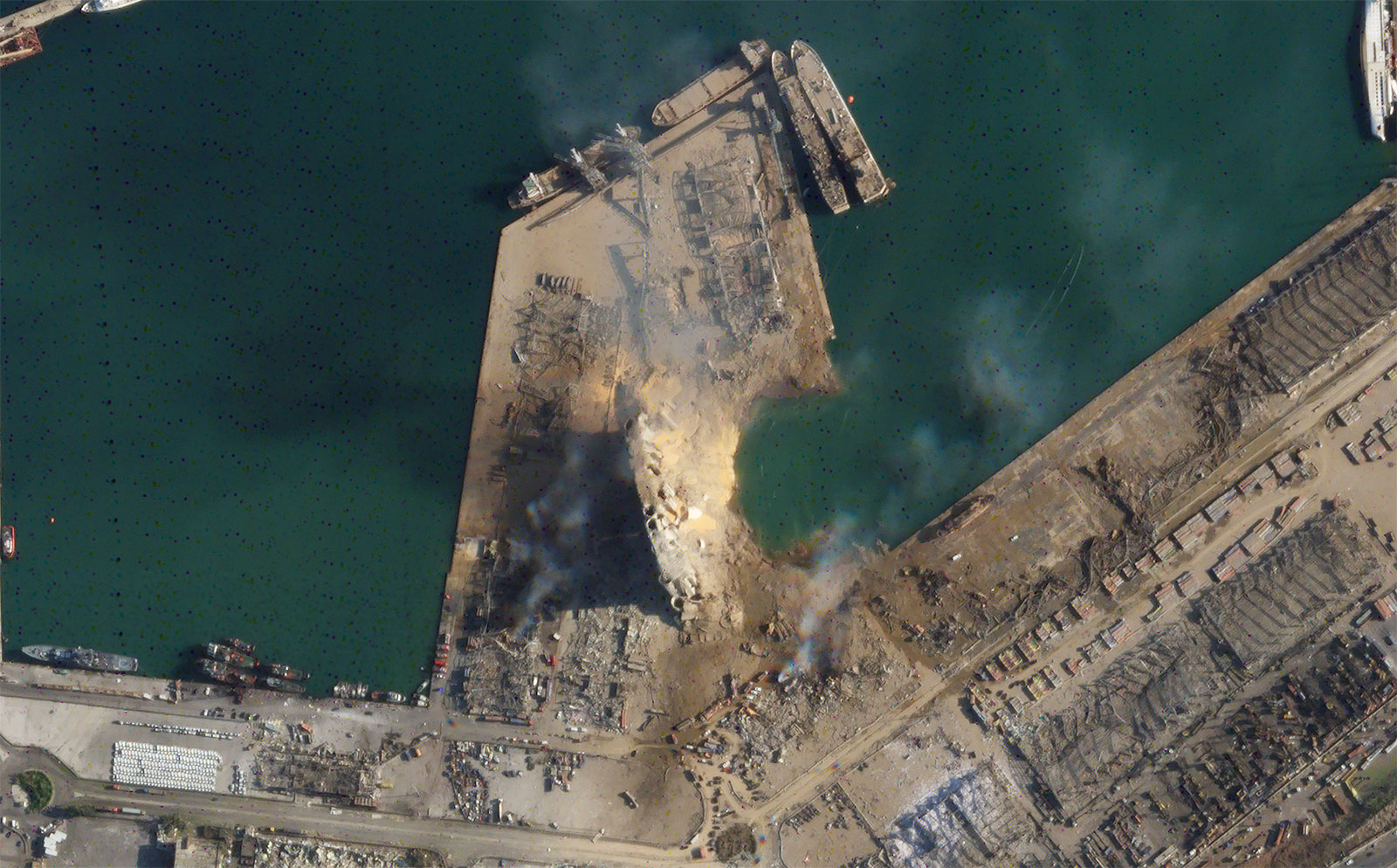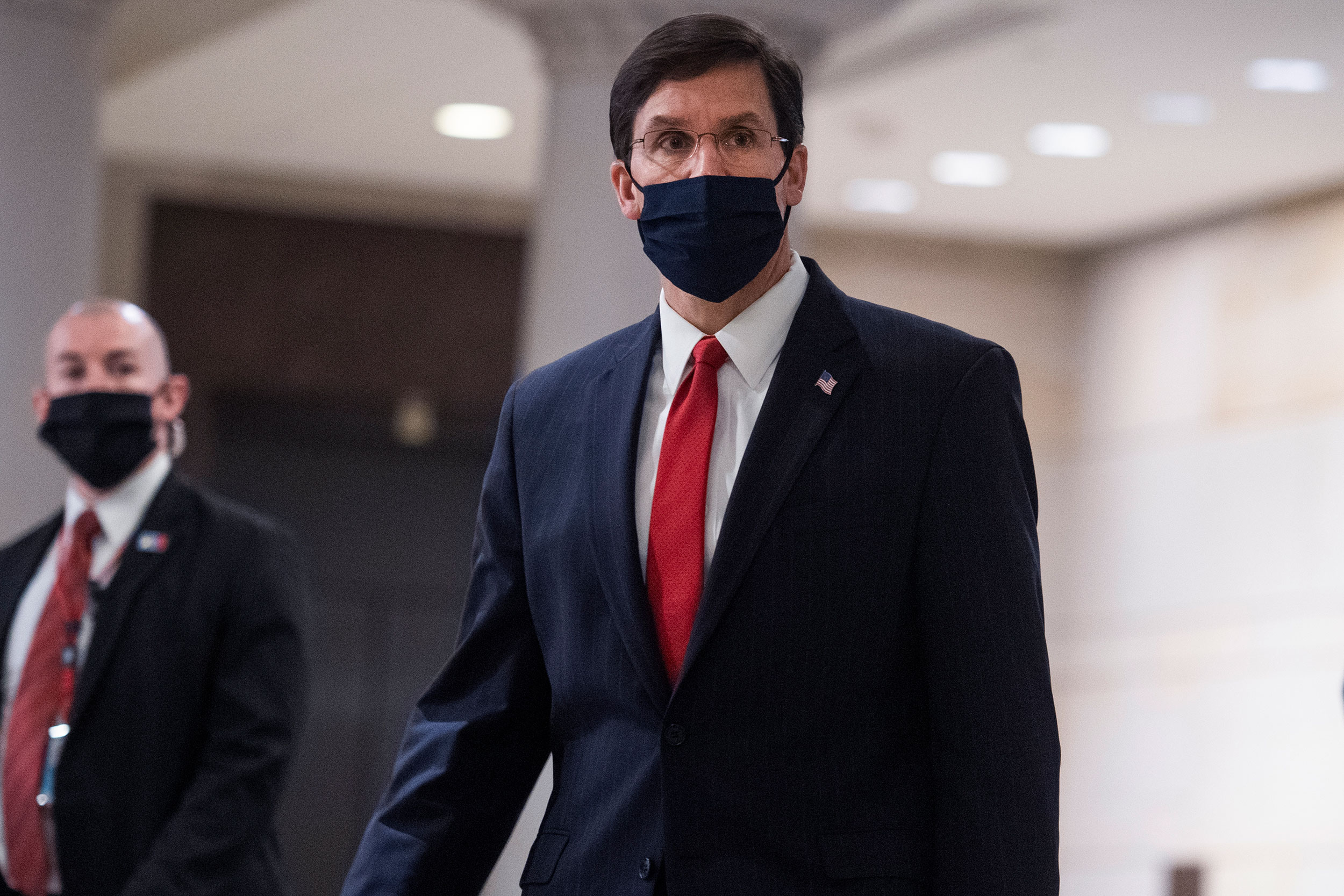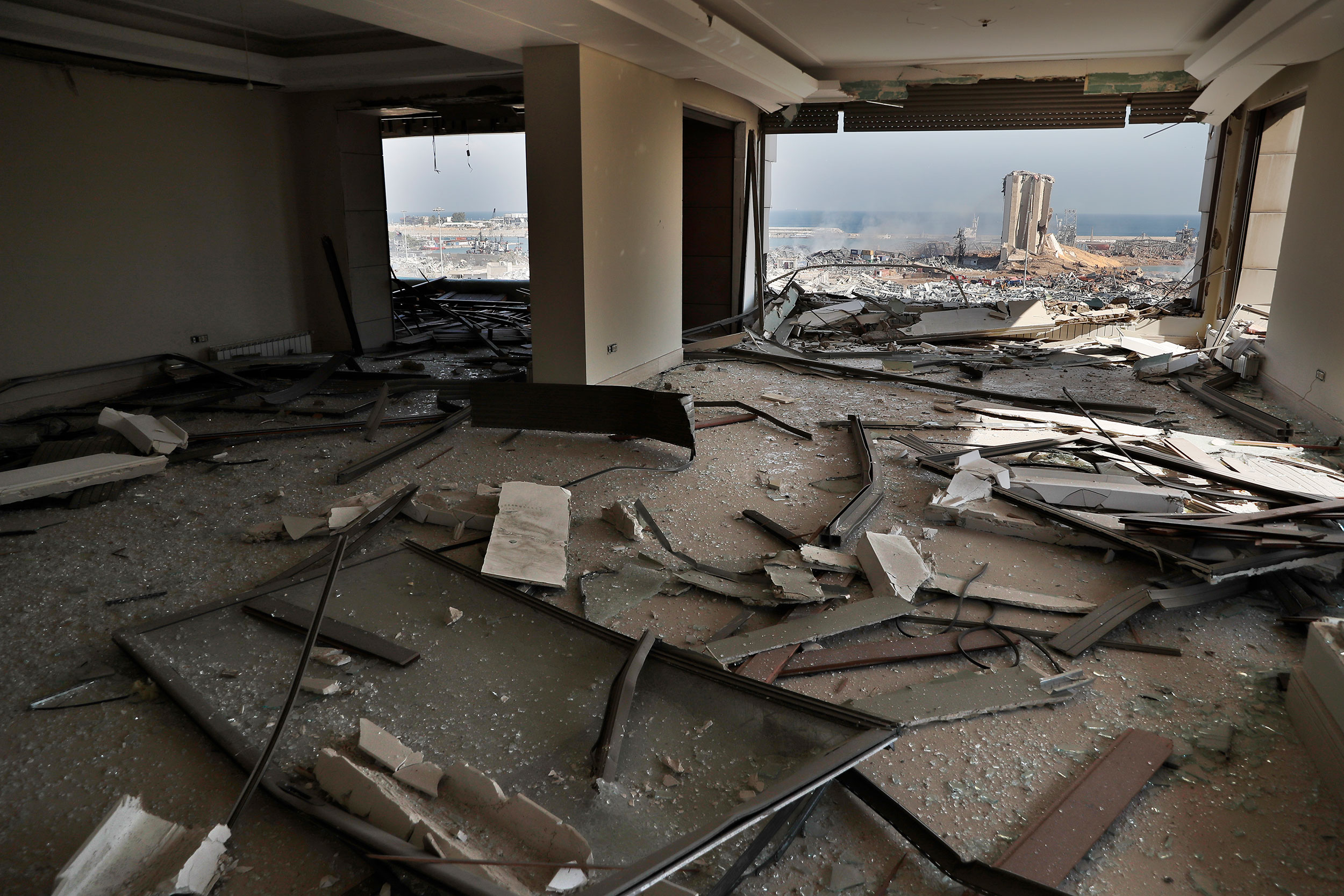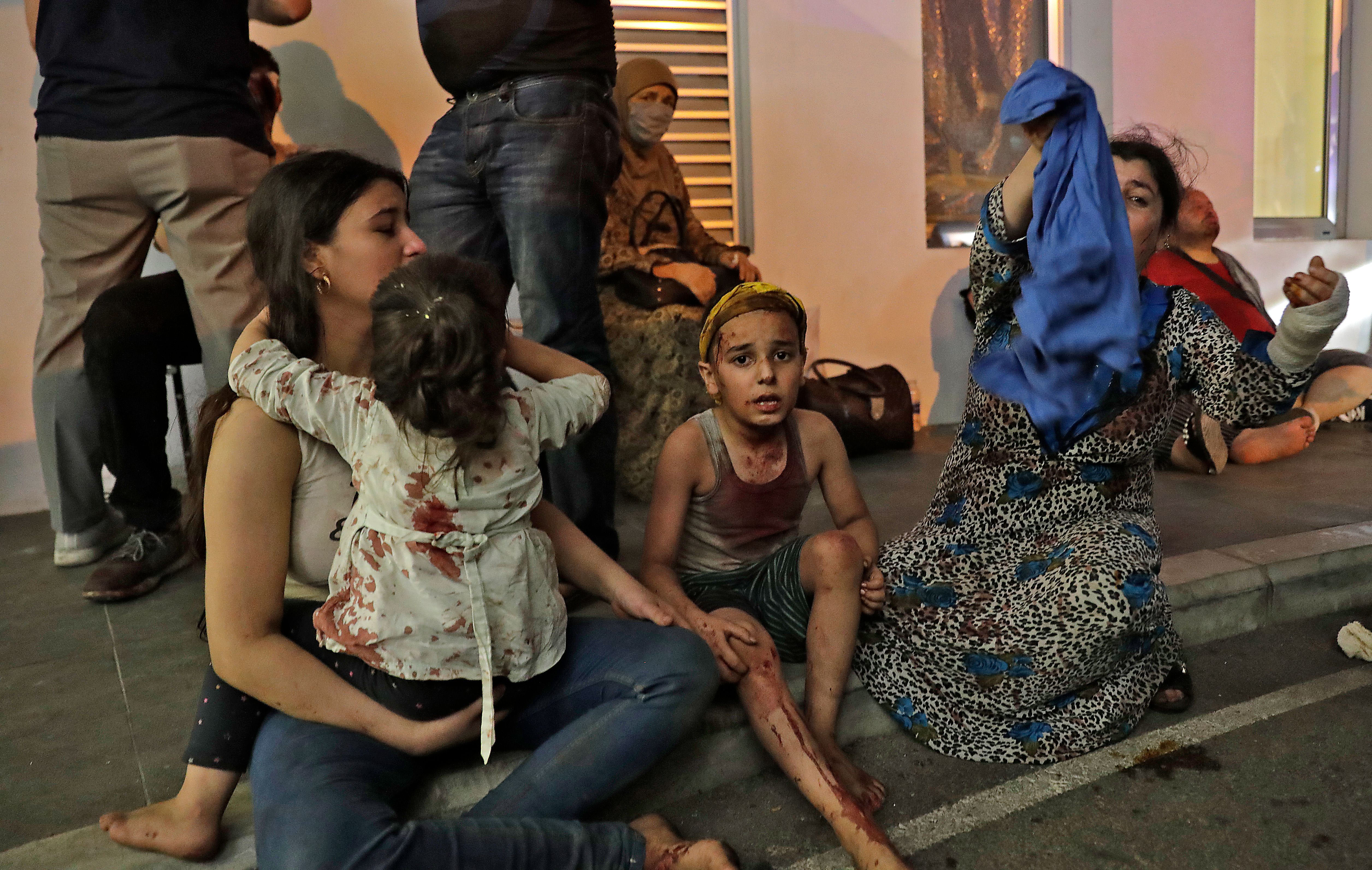The Beirut explosion created a 405-foot-wide crater
From CNN's Daniel Wolfe
 This satellite image, obtained by CNN from Planet Labs Inc., shows a massive crater at the site of Tuesday's explosion in Beirut's port. Planet Labs, Inc.
This satellite image, obtained by CNN from Planet Labs Inc., shows a massive crater at the site of Tuesday's explosion in Beirut's port. Planet Labs, Inc.The diameter of the Beirut crater created by Tuesday's explosion appears to be roughly 124 meters — or about 405 feet, according to a CNN analysis of a Planet Labs, Inc. satellite image.
That distance means the crater is well over a football field in length.
CNN utilized geospatial software to measure the satellite imagery of the explosion site. The assessment is accurate within 10 meters.
US defense secretary on Beirut: "Most believe that it was an accident"
From CNN's Michael Conte
 Defense Secretary Mark Esper arrives for a House Armed Services Committee hearing on July 9. Tom Williams/CQ-Roll Call/Getty Images
Defense Secretary Mark Esper arrives for a House Armed Services Committee hearing on July 9. Tom Williams/CQ-Roll Call/Getty ImagesUS Defense Secretary Mark Esper said the US is “still getting information on what happened” in regard to the explosion in Beirut, and that “most believe that it was an accident, as reported.”
US defense officials have told CNN there is no indication at the moment that the blast was an attack, despite President Trump calling it as such yesterday.
Esper’s remarks came as part of a discussion with the annual Aspen Security Forum, where he said he spoke about the blast with Secretary of State Mike Pompeo this morning.
At least 1 American killed and several injured in blast
From CNN's Jennifer Hansler
 The site of the explosion is seen from a damaged apartment building in Beirut on August 5. Hussein Malla/AP
The site of the explosion is seen from a damaged apartment building in Beirut on August 5. Hussein Malla/APThe US State Department is “aware of at least one US citizen killed, and several more injured, by the explosion” in Beirut, a spokesperson said Wednesday.
“All US Chief of Mission personnel in Beirut are safe and accounted for and US Embassy Beirut is open,” the spokesperson said.
The spokesperson said they are urging “US citizens in the affected areas who are safe to contact their loved ones directly and/or update their status on social media.”
“If you are in the affected area and need immediate emergency services, please contact local authorities. We urge US citizens to avoid the affected areas / shelter in place and follow the directions of local authorities,” they said.
This Beirut hospital may run out of medical supplies soon
From CNN's Aditi Sangal
Hospitals in Beirut are overwhelmed with casualties, with four of its hospitals out of service due to damage by the explosion. Even under this already high level of strain, Firass Abiad, CEO of Rafik Hariri University Hospital, says the situation will escalate and the death toll will climb further.
“I think that it's very likely that those numbers will increase. What we are hearing today from some of the EMS services that are sweeping buildings, that are in the vicinity of the blasts, is that they are finding bodies,” he said.
“I’m not sure we will see more survivors, but I think we'll definitely see more bodies coming in.”
The crisis comes to the city and its hospitals amid already existing challenges.
Rafik Hariri University Hospital was already running low on its medical supplies due to the financial crisis in Lebanon when Covid-19 hit, Abiad said. And in this backdrop of a surge in cases during a second wave, came the casualties from Tuesday’s explosion, completely overwhelming the hospital. Now, it’s about to run out of supplies.
The financial crisis, the coronavirus pandemic and the explosion has put his team “in the middle of a perfect storm,” he added.
“I'm a surgeon who worked through the civil war and we've seen financial hardships before. We've seen blast injuries before. We haven't seen corona before but I think that all of these together… we do not seem to see a light at the end of the tunnel.”
The way the staff at the hospital has reacted to the crisis has been “silver lining,” Abiad said.
“When this happened, part of my staff were finishing their shift and going home. And they just came back,” he said. “They were filled with empathy toward the patients and kindness. And I think the only hope I see with all of this is the ability of the human spirit to endure these hardships.”
Watch more:
UK to send aid, search and rescue experts to Lebanon, foreign secretary says
From CNN's Milena Veselinovic
UK will send 5 million GBP (approximately $6.6 million) in aid to Lebanon and will also provide medical and search and rescue experts to help in the aftermath of the Beirut blast, Britain's Foreign Secretary Dominic Raab told reporters on Wednesday.
Raab said he had spoken to the Lebanese Prime Minister Hassan Diab, and that a British Navy ship was "in the area" and ready to help.
How to help victims of the Beirut explosion
From CNN's Lauren Lee
 Wounded people wait to receive help outside a hospital on August 4. Ibrahim Amro/AFP/Getty Images
Wounded people wait to receive help outside a hospital on August 4. Ibrahim Amro/AFP/Getty ImagesAt least 100 people are dead and 4,000 wounded following an explosion in Lebanon's capital city of Beirut. While it is still unclear what caused the explosion, the city is decimated with thousands of residents left homeless, a medical system strained and up to $5 billion worth of damage.
You can help raise funds for supplies and assistance so desperately needed by clicking the button in this link.
Several charities are on the ground providing medical care, shelter, supplies and other desperately needed services to help the city recover and rebuild.
You can contribute by clicking here.
A televised mass showed the moment part of the church's ceiling fell because of the blast
From CNN's Aditi Sangal
A Catholic church in Beirut was televising its Tuesday mass as part of its Covid-19 safety protocols, but it was interrupted when the massive explosion went off.
Video of the service shows parts of the ceiling falling as a priest ran for cover, getting injured in the process.
Pope Francis has called on people to pray for Lebanon in the aftermath of Tuesday’s deadly explosion.
Watch the moment here from Al Hurra TV:
Death toll increases to 135, health minister says
From CNN’s Mohammed Tawfeeq and Mostafa Salem
The death toll for Tuesday’s blast increased to 135, Lebanon’s Health Minister Hamad Hassan told Al-Manar television.
Another 5,000 people are wounded and dozens more are still missing, he said.
“Unfortunately the number of martyrs is increasing,” Hassan told a reporter on Al-Manar television. “The wounded have reached 5,000 and they are receiving care inside the capital and outside the capital."
21 French citizens injured in the Beirut blast, Paris prosecutor's office says
From CNN's Barbara Wojazer in Paris
The office of the Paris prosecutor said in a statement on Wednesday that 21 French nationals were injured in the blast in Beirut.
This has prompted the Prosecutor's Office to open an "investigation for unintentional injury," the statement says, a standard procedure when French nationals are injured abroad, a source close to the investigation told CNN.
French President Emmanuel Macron will visit Beirut on Thursday to show “solidarity” with the Lebanese people in the aftermath of Tuesday’s disastrous explosion, according to the Twitter account of the Lebanese presidency.

 5 years ago
514
5 years ago
514 

